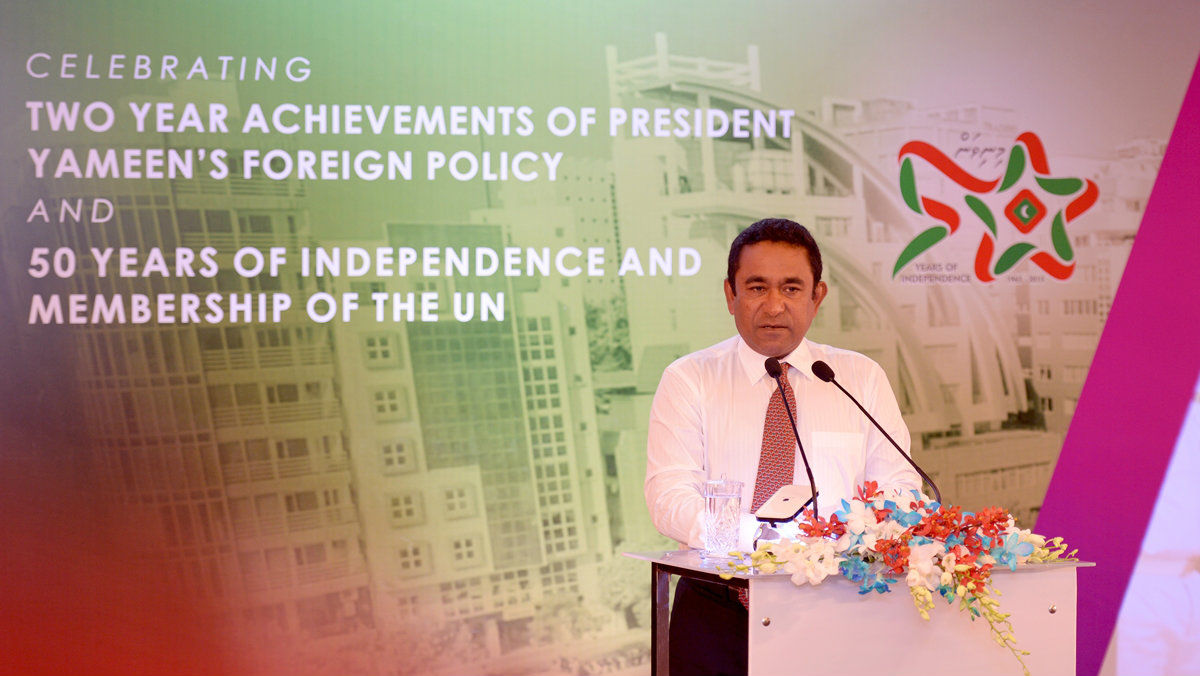President Yameen’s speech on 50 years of UN membership
“The UN is the biggest family with most members. Political and diplomatic organisations and associations exist within this family. These organisations and associations sometimes act as policeman, criticizing and penalizing small nations over events that occur in small nations,” President Abdulla Yameen said.

06 Dec 2015, 09:00
It is with great pleasure tonight that we celebrate the 50th anniversary of UN accepting the Maldives as its member state.
Since the Maldives became independent, the Maldivian people and senior officials of the state worked to become a member of UN’s large family as a mandatory step in maintaining our freedom. We note the attention paid by the leaders of the government even then, to maintain Maldives’ independence. Also, in the efforts to ensure Maldives remains an independent state, it is believed that foreign policy plays the most important role. If we try and recall [our past], it may be a good thing for us to question why the system of governance changed from ancient monarchy to a republic. From what we see from books, the monarchy changed into republic because the leading official at the time, minister of Home Affairs Mohamed Amin, had to travel abroad frequently for various purposes of the state, to speak on behalf of the Maldives. During that time, there were not many people among us who could do such work. Therefore, due to the importance of diplomacy to the Maldives and as Mohamed Amin was the only individual who could carry out the task efficiently, the Maldivian people chose to change our system of governance into a republic.
The king cannot travel abroad all the time to participate in the foreign affairs of Maldives. But such travels can be carried out while in the post of the president or a prime minister in a Republic. He [Mohamed Amin] made such travels abroad as a president of the Republic. This is how important diplomacy or foreign policy is to Maldives even then. We brought about change and replaced the monarchy with a republic for these reasons.
The Maldives became a UN member state around one and a half months after gaining independence in 1965. Without doubt, Ibrahim Nasir Rannabandeyri Kilegefaanu, the prime minister then, played the most significant role in the process. Also, late Abdul Sattar Moosa Didi aided his Excellency [Nasir] in the efforts. Our sincere gratitude goes to these two deserving individuals and God grant them eternal paradise.
Become a member
Get full access to our archive and personalise your experience.
Already a member?
Discussion
No comments yet. Be the first to share your thoughts!
No comments yet. Be the first to join the conversation!
Join the Conversation
Sign in to share your thoughts under an alias and take part in the discussion. Independent journalism thrives on open, respectful debate — your voice matters.




